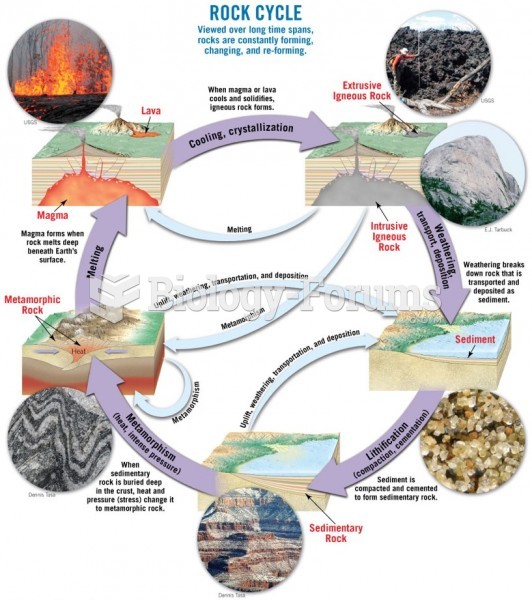|
|
|
Eating food that has been cooked with poppy seeds may cause you to fail a drug screening test, because the seeds contain enough opiate alkaloids to register as a positive.
According to research, pregnant women tend to eat more if carrying a baby boy. Male fetuses may secrete a chemical that stimulates their mothers to step up her energy intake.
Prostaglandins were first isolated from human semen in Sweden in the 1930s. They were so named because the researcher thought that they came from the prostate gland. In fact, prostaglandins exist and are synthesized in almost every cell of the body.
The first documented use of surgical anesthesia in the United States was in Connecticut in 1844.
As many as 20% of Americans have been infected by the fungus known as Histoplasmosis. While most people are asymptomatic or only have slight symptoms, infection can progress to a rapid and potentially fatal superinfection.
 During my research in India, I interviewed this 8-year-old girl. Mahashury is a bonded laborer who ...
During my research in India, I interviewed this 8-year-old girl. Mahashury is a bonded laborer who ...
 The hatred and vengeance of adults become the children’s heritage. The headband of this 4-year-old ...
The hatred and vengeance of adults become the children’s heritage. The headband of this 4-year-old ...





